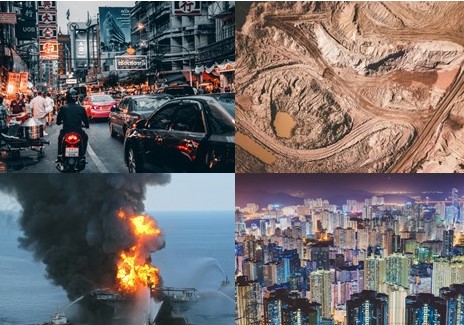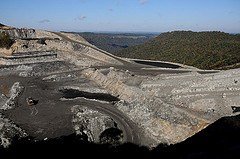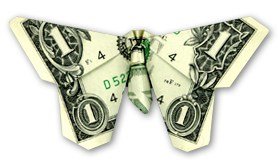The Silver Lining of the COVID-Caused Recession is Supra-Economic
by Brian Czech
COVID-19 has done in a deadly way what steady-state economists would prescribe in a healthy way: putting the brakes on a runaway economy. In fact, the pandemic has slammed on the brakes and jammed the GDP gearstick into reverse. It has ushered us into a recession that will be pronounced and protracted. In a COVID-caused recession, it’s nature at bat, not the Fed.
In these dark times, any source of comfort is welcome. Steady-state economists offer one of the only economic comforts to be found, a bona fide silver lining that warrants inspection by the mainstream media, public, and policymakers. There are three qualifiers. First, the silver lining is mostly macroeconomic, not micro. In fact, it is so big-picture we might call it supra-economic as it transcends the standard economic indicators. Second, the comfort it provides will be palpable primarily to younger generations. Third, it may take a paradigm shift to feel the comfort, especially for older readers who’ve spent most of their life in the 20th century, when a burgeoning economy was such a good deal for people and nations.

GDP illth: noise and congestion (upper left), landscape destruction (upper right), environmental catastrophe (lower left), light pollution (lower right). (Credit: CC0)
The silver lining begins to appear when we recognize that the $88 trillion GDP ($21 trillion in the USA alone) was so big and bloated, it was causing more harm than good. It had grown into bad-deal territory, in other words. All else equal, that means a reversal—recession, degrowth, declining GDP—is actually a better deal at this stage. While it still sounds incredible to most citizens and policy makers, the logic is irrefutable. Recession is the antidote to the outbreak of GDP “illth,” the term favored by Herman Daly to more clearly contrast with “wealth.”1
The point here is somewhat analogous to Bernie Sanders’ comment about Cuba prioritizing literacy under Castro. Increasing literacy was a “good thing,” he said, and was ruthlessly attacked for calling it that. He made the mistake of failing to qualify the circumstances; namely, that Cuban literacy was floated out only in a sea of dictatorial bad things.
To avoid a similar mistake, it must be acknowledged that COVID-19 is a very bad, truly horrible thing. It is a sea of fear, misery, and lonely deaths. No one is “rooting for the virus,” as reactionaries on social media are prone to asperse. The COVID-caused recession, on the other hand, can be quite a good thing; supra-economically at least. Let’s consider some of the reasons.
Supra-Economic Indicators
Other writers have noted certain benefits of the recession: most notably reduced traffic congestion but also less noise, more family time, and—so far at least—less crime. These effects of the slowdown are typically thought of as social or psychological benefits. However, when we “add up” these benefits, they start painting a macroeconomic picture. They help to illustrate, like pieces of a puzzle, the fact that the economy—with all that traffic, noise, and stress—was growing too big for the good of society.
Ideally, conventional macroeconomics would illuminate the overgrowth of the economy, helping to warn the public and policy makers of the dangers of stimulating yet more growth. Unfortunately, the word “macroeconomic” is so tied to figures such as unemployment, inflation, and of course GDP itself, that confusion would abound if we started referring to peace and quiet, for example, as a macroeconomic indicator.
Furthermore, the “leading economic indicators” (as well as the “lagging” and “coincident” indicators) reveal the growth bias in conventional macroeconomics. These indicators—building permits, new orders, manufacturer shipments, etc.—are clearly designed for indicating whether or not GDP will be growing in the near future. All interpretations in the conventional literature are that vigorous growth is good, slowdowns are bad, and recessions are anathema. “Macroeconomics,” while it sounds academic, amounts to cheerleading for growth in the applied journals of business and finance, as well as the popular news outlets.
So, peace and quiet won’t be reported by the Conference Board any time soon. Yet peace and quiet is directly related to economic activity. In particular, it is inversely related (similar to unemployment). We don’t want to lose the relevance of the indicator to economic affairs by dropping the word “economic.” If our goal is a steady state economy, we must raise awareness, at every turn, of the negative implications of economic growth.
Given that macroeconomics, including the measurement of macroeconomic indicators, is currently off limits to the steady-state program, we’ll have to take the linguistic bull by the horns and establish a new term and concept: “supra-economic” indicators. “Supra” is a prefix meaning above, over, and “beyond the limits of.” Supra-economic indicators, then, are overarching indicators of society’s well-being that are clearly and directly affected or impacted by the level of economic activity. It is not enough to classify such indicators as merely “ecological,” “social,” or (least helpful of all) “non-economic,” not when they are directly related to economic activity! Rather, their relevance to economic policy must be kept at the forefront; thus the term “supra-economic.”
Environmental Conditions as Supra-Economic Indicators
Reduced traffic, less noise, and more family time are readily observable and experienced by many if not most Americans already. They are like the pieces of a puzzle that are easiest to recognize and assemble. Taken alone, though, they only hint at the silver lining of the COVID-caused recession.
Some of the most important puzzle pieces are much harder to recognize and piece together, especially for Americans who haven’t experienced real environmental leadership in decades. Middle-aged Americans, especially, have been misled by the win-win rhetoric, “There is no conflict between growing the economy and protecting the environment.” These Americans and global citizens subjected to “green growth” fantasies are not attuned to long-term ecological threats. Much less do they draw the connection of such threats directly back to the level of economic activity, or GDP. Likewise, when a recession hits, most citizens aren’t aware of the environmental benefits without a little assistance from scientists, journalists, and commentators.
Given the COVID-caused recession, the puzzle pieces are there for the assembling, starting with drastic reductions of carbon monoxide, CO2, and nitrogen dioxide emissions. Professor Róisín Commane from Columbia University, discussing carbon monoxide levels in New York City, told BBC News, “This is the cleanest I have ever seen it. It is less than half of what we normally see in March.” With regard to CO2, it’s as if COVID-19 is enforcing the Paris Climate Accords, whether presidents want to or not. In February, Chinese CO2 emissions dropped “at least 25%.” Meanwhile, while the virus may be ravaging the lungs of its victims, at least the victims’ lungs will be less challenged by the ravages of particulate matter, nitrogen dioxide, and industrial emissions in general. Doyle Rice of USA Today, having interviewed a swath of environmental scientists, suggested that the COVID-19 pandemic and its economic effects could actually be saving lives in some parts of the world.
Then there are the thousands of species of fish, wildlife, and plants getting a break from the bulldozer of GDP. Biodiversity loss is as solid of an indicator of economic activity as GDP itself. Given the fundamental conflict between economic growth and wildlife conservation, wildlife wins when the economy slows. It doesn’t take long, either. For example, the water is visibly cleaner in Venetian canals, giving visitors (on foot or aboard gondolas) the joy of spotting fish below and clear reflections of swans above.
Wildlife is inspiring to all, which may very well trump economic considerations (supra in that sense as well). Again, however, we don’t want to forget the crystal-clear relevance of steady-state economics to biodiversity conservation. We should refer to biodiversity, then, not only as an environmental indicator but as a supra-economic indicator.
Nitrogen dioxide over #China has dropped with the coronavirus quarantine, Chinese New Year, and a related economic slowdown. https://t.co/URfLNy0GZJ #NASA #COVID2019 pic.twitter.com/PM60uL772K
— NASA Earth (@NASAEarth) March 4, 2020
A silver lining in the clouds of the COVID-caused recession. (Credit: NASA Earth)
The Silver Lining: There for the Long Term?
Right now, while the GDP bulldozer is idling behind the survey stakes, we have the opportunity to consider what remains of the landscape and how precious it is. We have to recognize the COVID-caused recession (and help others recognize it) as a reprieve for the ecosystem; the stage upon which tomorrow’s economy is set. The healthier the ecosystem, the healthier the economy to be sustained. Why race to tear it all up again as soon as we get past the peak of the pandemic?
Meanwhile on the social front, when the pandemic subsides citizens may conceivably be left to ponder, “Gosh, in some ways it was nicer during the recession. The COVID part was horrible, but the peace and quiet was amazing. Violent crime was almost unheard of for a change. The family time turned out to be priceless!” On the other side of the same coin, they may also be thinking, “Well, we’re past the pandemic, but now it’s back to the rat race and all the noise, traffic, and stress.”
When you stop to think about it, as we now have time to, the benefits of slower and lower economic activity are ubiquitous, nuanced, and heartening. The silver lining—a reprieve from the ravages of runaway GDP—has been sewn into the environmental and social fabric of 2020. We’d be wise to value and keep it, not rip it out and sell it as soon as we get the chance. With a newly developed appreciation of economic moderation, we can move more intentionally toward a post-growth, steady state economy that fits on the planet.
Footnotes
1A hardcopy version of this article is available as Chapter 1 in Best of The Daly News: Selected Essays from the Leading Blog in Steady State Economics, 2010-2018.

Brian Czech is the executive director of CASSE.




Excellent. MUST be well shared.
“Leadership is being ahead of the curve, anything else is being a part of the problem”
Yes, the big question will be how gains can be sustained going forward as the worst of this subsides. The economic fallout from this will last for years. It would be a shame if we didn’t use the opportunity to reorient our economy.
Thanks Brian. Underpinning any economy is the land. A question arises, “Can we have a food, water and energy education, please?” The answer to this question will determine how we, we again, our human species, will conduct our business.
MY CONTRIBUTION
When it comes to our environments, the social & physical ones, a fresh start is all we need (and a big change of heart too).
A FRESH START
Harbouring life are our most precious Treasures: food water energy. This is a given.
The stage is set for us to grow this food, harvest this water and harness this energy.
Food is energy as much as energy is human endeavour. The benefits of living the land are unparalleled.
WHAT HINDERS US
None of the above is part of our upbringing (implying family structures) and education (implying social structures).
MY TEXTBOOK
MUM DAD ADAM EVE: Where Else Would Children’s Memories Reside?
65,000 words
http://startwithfood.net/wp-content/uploads/2018/03/mum-dad-adam-eve.pdf
Allegory. Critical/Seminal/Literary Work
Drawn by the two stories is a parallel between a Most Idyllic Household (Mum Dad) and a Garden in Eden (Adam Eve). These are two tragic stories that speak of a lesser humanity.
A chain is only as strong as its weakest link
The weakest link is the family/social group.
Two, three or four family members living at first under one roof, later leading separate lives in as many separate postcodes.
Hidden in plain sight are the realities of no family groups, no social groups, no communities, and no society.
No change or structural change is ever possible without these groups.
What would provide a headstart is a family group. The family group, qua family and social group, is the friendly face of a society at ease with itself.
A country without local economies is a failed country.
My Reading of Life: The cause for co-existence can be served by grounding ourselves to the realities of everyday. My ideal community is one in which people gather, make decisions and share time and experiences.
You desperately need to go to Cuba. Walk the narrow residential streets until you find those to narrow for an automobile.
This is acute illiterate mind rot; “He (Bernie) made the mistake of failing to qualify the circumstances; namely, that Cuban literacy was floated out only in a sea of dictatorial bad things.”
Good article about the silver lining to the SARS-CoV-2 pandemic cloud. I hope this perspective is able to survive the roll-out from under the virus hype that now allows the natural world to breathe deep and relax a bit. We’ve noticed this in our bioregion, too, where the “shelter in place” edict has resulted in a much quieter, much more wildlife friendly environment.
One technical correction: SARS-CoV-2 does not affect the lungs. The difference between SARS-CoV-2 and SARS-CoV-1 is that SARS-CoV-2 affects the upper respiratory tract, not the deep lungs. Any lung complications are subsequent to SARS-CoV-2 and are not caused by this virus.
I’m pleased to see that you and CASSE are keeping the faith on the steady state front! You’d think, by now, the message would be clear. But then, one would think as well that sanity would prevail in the White House.
Now, why would you say that ? Can you give a reference for this claim? What about the characteristic MRI patterns showing spherical infiltrates along the lung margins that have been used to diagnose COVID-19 in lieu of nasal swabs? See https://www.thelancet.com/journals/lancet/article/PIIS0140-6736(20)30183-5/fulltext; “2019-nCoV caused clusters of fatal pneumonia with clinical presentation greatly resembling SARS-CoV..” How about sticking with the science and having a serious discussion about the need to get over the idea of “economic growth” one way or another?
Thank you Brian. Very important insights! Agree with you about the possible upsides, even in the face of so much difficulty. I wrote a similarly focused OpEd (below).There were some important findings in the recent World Happiness Report issues on March 20th about which societies do better even in the face of disasters vs. those which don’t. ( linked in the blog) We could learn some important lessons about restructuring our society and priorities moving forward from here. Like rebuilding infrastructure after natural disasters should be more resilient, rebuilding our economy after COVID 19 should be more equitable and should focus on what really matters (including the environment) instead of unsustainable growth .
https://www.ourdailyplanet.com/story/happiness-in-the-age-of-covid-19/
In my opinion… well the breaks might be on, but the same drivers still are at the wheel…
The stupendous amounts of money thrown to save the economy that is killing us…
pretty much says to me where political will is focused.
Recession, de-growth, will happen, but without the deep structural changes and the political will for change.
emissions are likely to rise and supersede levels as the economy bounces back, because growth is still the goal.
A full-blown global pandemic and economic crash, could easily drain money and political will from climate efforts.
as business look for concessions in lowering environment stands etc
* If capital markets lock up, it’s going to become difficult for companies to secure the financing necessary to move ahead with any pending solar, wind, and battery projects, much less propose new ones.
* Global oil prices took a historic plunge on Monday, driven by a price war between Russia and Saudi Arabia and coronavirus concerns. Cheap gas could make electric vehicles, already more expensive, a harder sell for consumers. It’s why Tesla’s stock crashed on Monday.
A virus alone won’t be the cure of environmental ills..
Those NOx maps of China are brilliant. It’d be great to assemble a suite of such vivid visual stories that we could all use in trying to explain to people the madness of endless growth.
Thank you for this, Brian; I especially like your metaphor: Yes, wildlife will benefit, “while the GDP bulldozer is idling behind the survey stakes.” But let’s not forget the probable origin of this coronavirus (assuming it was not lab-created, which is not necessarily unimaginable) in the abominable wild animal, “bushmeat” and body parts trade, which is ravaging species from Africa and elsewhere, largely to feed the “demand” coming from Asia–a concern not expressive of racism but rather of nonanthropocentrism, since it is the assumption of human supremacy that has blinded us to the destructive influence of the money game for all too long. Now we just have to try to figure out how to make the transition to a sustainable way of living with as little panic and chaos as possible–quite a challenge!
Every time I come to CASSE, I am pleased to find like-minded people. At 75 years old now, I have been an environmental activist since 1971. My environmentalism is based on science, mainly Biology and Ecology (a branch of Biology).
This latest essay is superb! Only one correction for you, Brian. You wrote: “We have to recognize the COVID-caused recession (and help others recognize it) as a reprieve for the ecosystem; the stage upon which tomorrow’s economy is set. The healthier the ecosystem, the healthier the economy to be sustained.”
There is no such thing as “the” ecosystem. This misuse of the word ecosystem is a common mistake. There are many ecosystems … from microscopic to whole watersheds. So the simple correction is to edit your essay to read “… as a reprieve for ecosystems …” or even “… for Earth’s ecosystems.” Follow that with “The healthier the ecosystems” (plural) … the healthier … etc.”
I have seen the ‘biosphere’ used to refer to the whole planet and ‘ecosphere’ to refer to regions, like watersheds, puddles, to the microscopic, etc.
Hi Lory ~ The biosphere describes everything alive this planet, including the atmosphere. The atmosphere where life exists, the land, water and waterways, and to the depths of the oceans where life is found. So that includes all ecosystems that are dependent on land, water, and atmosphere.
Ecosphere is a newly coined term which is unnecessary. To describe the sum of life in any place (environment) use ecosystem. Not ecosphere. Words have meaning! Let’s use them well.
An alternative to Earth’s ecosystems (plural) is to use biosphere (singular). The biosphere says it all :o)
The following are the closing paragraphs of my paper ADAPTING TO CLIMATE CHANGE – The Steady State Society.
“Faced with a large and involuntary population reduction and its accompanying economic and social disruption, Civilization’s focus must be on what comes after. How can a new civilization adapt and survive?
One distant and uncertain vision of a rational, sustainable world features a Steady State Society characterized by:
• a stable world population
• a world government, rather than nationalism
• an ethos of individual and regional interdependence, common concerns, and mutual goals (globalism)
• economic stability (constant gross world product)
• gender and racial equality
• a focus on quality, not quantity
• emphasis on the non-material, not the material
• a more equitable distribution of world wealth
Achieving such an auspicious future will require new values and new norms supporting a sustainable and resilient global system. Above all, it will require enlightened leadership and an educated public. Needed change will take place incrementally, and current generations will not see its fruition. Successful adaption will be difficult, costly, painful and prolonged, but within the realm of the possible.
Failure will be catastrophic – a perpetual intensified COVID-19”.
Nice article, something that I’ve been mulling over lately too, Brian. This is a density-dependent warning from nature, IMHO. It could be the 1st stage of the apocalypse if course corrections aren’t made.
-Bob
Sorry but in my view… Great Depressions, World Wars, Great Recessions and epidemics never “slow down” the world in the long run. In fact–such events are essential for the growth-based system. I.e…. In a pyramid scheme, it is necessary to run off with the money, then start another pyramid scheme… Similarly—in order to go up, stock markets must intermittently crash down.
Today—nobody argues that England should own India. Or lease India to a corporation. However from 1848 to 1888—this was not questioned by Charles Dickens or Arthur Conan Doyle. In spite of their famously perceptive writings.
Similarly… Born in India where every natural resource is disappearing… Fareed Zakaria applauds China for backing out of population control. And for thus achieving an enviable economic record. Ignoring the fact that none of this would have been possible without first curtailing the population.
And so—sorry but—we will only renew growth-based business with more fervor. Preaching won’t work either. In 2020 USA—growth based economies cannot be questioned—any more than colonialism could be questioned in 1820 England.
However–it is possible to popularize non-growth ideas with sustainable business models. Such as the following.
1. For “Newman’s Own” type nonprofit corporations to displace Facebook, Google, Amazon, Ebay, etc. By developing the promotional idea of “using profits to help the customers who pay for the profits.”
2. Also for a nonprofit group to offer affordable financial management. Designed to hold value during a recession.
3. China’s population reduction policy was inspired by “Limits to Growth” in 1972. Similarly… somebody needs to convince China to get out of the primary growth engine: the stock market. Which is not compatible with population reduction. And because China’s stock market cannot compete with the USA. And corporate bonds attract more money than stocks. If they are stable. And the main cause of instability is: stock markets.
Like ‘The Boy in the Bubble,’ a real child born with a faulty immune system, CoVid-19 has turned me into a ‘Bubble Boomer,’ a senior who has a compromised immune system. This means that if I cross paths with the CoVid bug, I’ll probably be gone in a week. So, now I’m in a bubble of my own, isolated at home for the duration (whatever that is).
To Brian’s point about Covid 19 having a steady-state silver lining, I agree. Most countries are inadvertently implementing many steady-state ideas, like guaranteed incomes. But underneath it all, the implicit message is that, once the pandemic is close to over, we’ll get right back to business as usual, growing the economy. There seems to be a disconnect between our current planet-wide pandemic and what caused it, economic growth and everything that sprung from it.
While most steady-staters will agree this isn’t the exact minute to start slagging economic-growth, (we have to beat back the microbial hordes first) perhaps in the next months, when the infection curve flattens, we could encourage our friends to spend a bit of the time while isolated at home introducing themselves to steady-state economics and ecological economics. They just have to put those phrases in their search engines… or you could suggest to them to come to this site. And make sure your political representatives become aware too. Most have never heard these phrases either.
So, stay safe and remember that social distancing doesn’t mean emotional distancing.
Thanks for a great post! One point of correction–this is not a Covid-caused recession. This is a human-caused shutdown of economic activity in order to prioritize (finally) human well-being over busy-ness-as-usual. A virus cannot cause a recession, but a human response can. Let’s give credit where credit is due, if nothing else than to make it crystal clear that this economic shutdown was a deliberate political choice, and that we can therefore do it again in order to, for example, save million of lives ANNUALLY by eliminating air pollution.
In a world of renewable life-sustaining natural resources are poverty and pollution the byproduct of an industrial economy? Yes.
Is not the product of labour the basis of our economy? No economist Adam Smith was wrong the product of Earth systems are.
The Global Resource Bank Eco Currency Solution to Poverty & Pollution
Dear Steady-State Shareholders,
Please review https://www.grb.net and let me know what you think.
Thank you for your consideration,
John Pozzi
Brian, the pandemic is a lesson on the principle of living within the limits of the possible — as the indigenous Brazilians used to live for 12,000 years before the Europeans arrived. I consider this as another Covid-19 silver lining.